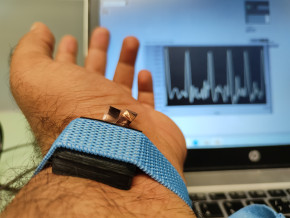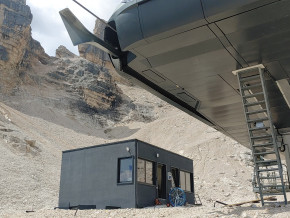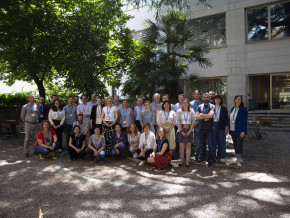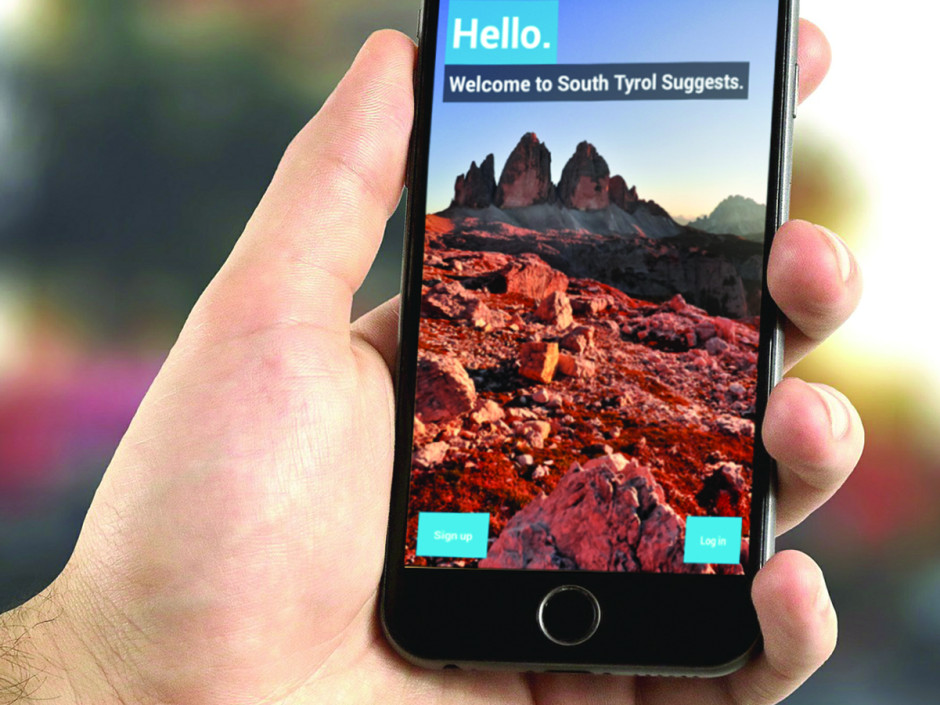Better Than You Know Yourself
At some point on the net you’ve probably run into a recommender system: “Do you like George Orwell? Well then, you’ll like Huxley”—and so on, and
so forth. The 2.0 of this technology—‘context-aware’ recommender systems—is an intelligent system that puts info such as time of day, location, and
even your mood into the data pot. The results are impressive—and possibly unnerving.
Over the past 20 years, recommender systems—which predict and suggest merchandise based your browsing history and profile— have become an essential part of the online experience. Vacations, power drills, concert tickets—you name it, these cleverly crafted algorithms connect you with the best deals in the shortest time. The Next Gen of these systems are called ‘context-aware’— machine learning technology that makes precise recommendations based on parameters that range from the weather to whether or not you’re having a good day. You want to buy a shirt or blouse? So: where do you live? what are the trends? how are you feeling these days? –it will all be considered now. It’s a huge jump forward for these sophisticated bits of code, one that can revolutionise the accuracy of online searches, for better or for worse.
“Avoid the Mountain Museum: you’re afraid of heights”
Along with Google and other Internet juggernauts, this technology is being researched by Francesco Ricci and his PhD team at Faculty of Computer Sciences of the Free University of Bolzano/Bozen. “Context-aware technology is very exciting and very difficult… because there are so many conditions and variables that you can use,” says Ricci, a mathematician, who along with PhD candidates Matthias Braunhofer and Mehdi Elahi, has been optimising the technology in several (secret and not-so-secret) products. “’It’s not just bi-dimensional, its multi-dimensional… modeling all these interactions creates models with billions of parameters.” One of the latest innovations the group has developed is ‘South Tyrol Suggests’ (STS), a travel recommender app for Android-based smartphones currently available in beta. The system calculates optimal point-A-to-point-B routes for tourists, along with their best mode of transportation, and advises on what to see along the way. Then it presents the options within the context of the user’s preferences, current weather and traffic conditions. What’s more, with a simple personality scale—degree of extraversion, conscientiousness, openness, and so forth—STS assesses what choices you’d likely make. Why propose a ski tour, after all if you don’t like the unexpected?
No, you don’t want that, you want this.
Oh dear, how much do we want machines to know about us? Ricci points out that cellphones are already broadcasting our location to the world, yet acknowledges that with technology like this, the public may some day be surprised at the reach of Big Data’s omnipotent eye. “When the recommendation becomes so precise to say… “you cannot take the train you normally take because there’s a strike today.” The minute you realise: ‘Oh, he knows that I’m taking the train.’- -this is the critical aspect… I am pretty sure that in the future we will have these kinds of issues and problems because people will realise that the system will know a lot about what they do.” Clearly, a Huxlyan world is not what scientists like Ricci and company have in mind, but the advent of context-awareness will without a doubt transform our relationship with technology.
Related Articles

Tecno-prodotti. Creati nuovi sensori triboelettrici nel laboratorio di sensoristica al NOI Techpark
I wearable sono dispositivi ormai imprescindibili nel settore sanitario e sportivo: un mercato in crescita a livello globale che ha bisogno di fonti di energia alternative e sensori affidabili, economici e sostenibili. Il laboratorio Sensing Technologies Lab della Libera Università di Bolzano (unibz) al Parco Tecnologico NOI Techpark ha realizzato un prototipo di dispositivo indossabile autoalimentato che soddisfa tutti questi requisiti. Un progetto nato grazie alla collaborazione con il Center for Sensing Solutions di Eurac Research e l’Advanced Technology Institute dell’Università del Surrey.

unibz forscht an technologischen Lösungen zur Erhaltung des Permafrostes in den Dolomiten
Wie kann brüchig gewordener Boden in den Dolomiten gekühlt und damit gesichert werden? Am Samstag, den 9. September fand in Cortina d'Ampezzo an der Bergstation der Sesselbahn Pian Ra Valles Bus Tofana die Präsentation des Projekts „Rescue Permafrost " statt. Ein Projekt, das in Zusammenarbeit mit Fachleuten für nachhaltiges Design, darunter einem Forschungsteam für Umweltphysik der unibz, entwickelt wurde. Das gemeinsame Ziel: das gefährliche Auftauen des Permafrosts zu verhindern, ein Phänomen, das aufgrund des globalen Klimawandels immer öfter auftritt. Die Freie Universität Bozen hat nun im Rahmen des Forschungsprojekts eine erste dynamische Analyse der Auswirkungen einer technologischen Lösung zur Kühlung der Bodentemperatur durchgeführt.

Gesunde Böden dank Partizipation der Bevölkerung: unibz koordiniert Citizen-Science-Projekt ECHO
Die Citizen-Science-Initiative „ECHO - Engaging Citizens in soil science: the road to Healthier Soils" zielt darauf ab, das Wissen und das Bewusstsein der EU-Bürger:innen für die Bodengesundheit über deren aktive Einbeziehung in das Projekt zu verbessern. Mit 16 Teilnehmern aus ganz Europa - 10 führenden Universitäten und Forschungszentren, 4 KMU und 2 Stiftungen - wird ECHO 16.500 Standorte in verschiedenen klimatischen und biogeografischen Regionen bewerten, um seine ehrgeizigen Ziele zu erreichen.

Erstversorgung: Drohnen machen den Unterschied
Die Ergebnisse einer Studie von Eurac Research und der Bergrettung Südtirol liegen vor.
